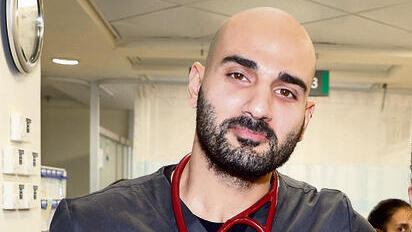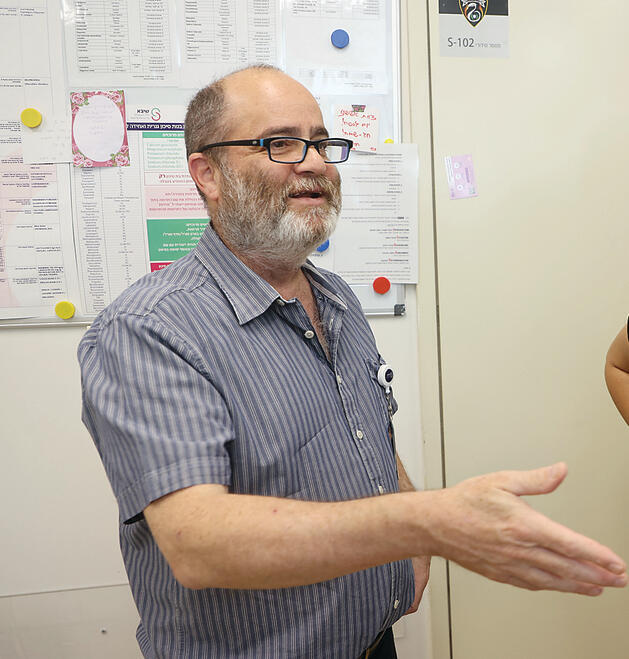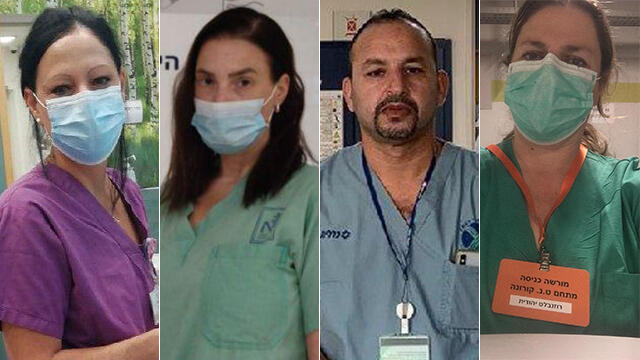Getting your Trinity Audio player ready...
The Israeli health care system has long been a bastion of coexistence, where Jews and Arabs work seamlessly with each other. Sadly, since the horrific events of October 7 this no longer seems to be the case. Medical institutions have taken steps against Arab members of staff who they believe support Hamas, either openly or covertly.
Read more:
Many in the Arab sector said they were subjected to a witch hunt and attempts to frame them as terrorist sympathizers.
"I've been personally targeted," says a nurse from central Israel. "They called my manager, but management backed me up. while they knew better, others don't want to listen. Even if I speak out against Hamas, they still assume I support them. I don't think condemning the massacre and feeling bad for a Gaza baby being killed are mutually exclusive, but in this reality there's no room for it. You're forbidden feeling empathy.
"It's important to understand that just because I 'liked' a post about someone empathizing with civilians in Gaza, doesn't mean I'm a terrorist sympathizer," she said. "There's a rift forming between Jews and Arabs, and I can only hope it gets resolved." Others staff members said they've been suspended for supporting Hamas, without being given the chance to set the record straight.
She says the problem comes across in all facets of hospital care, whether it's between Jewish and Arab patients, Jewish patients and Arab staff and sometimes between Jewish and Arab staff. "One says Israel bombed the hospital, another says it didn't. There's so much tension. My best friend told me there's a nurse whose daughter is connected to a respirator, and she asked that no Arab come near her daughter."
Prof. Gadi Segal is at the forefront of addressing the issue of relations between Jewish and Arab employees at the Sheba Medical Center. He acknowledges the presence of tension, stating, "Certainly there is tension." In recent weeks, he has been frequently called upon to mediate various incidents involving complaints from both Jews against Arabs and vice versa.
Prof. Segal reveals that there have been instances where patients expressed dissatisfaction with receiving treatment from Arab staff members. In response, the hospital made it clear that "while patients have the choice to seek care elsewhere, the staff, who are all Israelis, will continue to provide care to all patients without discrimination. The commitment to non-discrimination extends to both the staff and patients at the medical center."
In Sheba's emergency room, Dr. Odi Ibrahim discusses the contrasting dynamics between the positive relationships with fellow team members and the challenging interactions with patients. Dr. Ibrahim shares, "I've been subjected to some ugly things. There were quite a few occasions when I wished 'good morning,' they looked at my badge, saw what my name was - and they ignored me." Despite these experiences, Dr. Ibrahim remains committed to carrying out his duties as usual. However, it is clear that each instance has left an emotional impact. Dr. Ibrahim questions why he is treated in such a manner, considering that "I am there to provide assistance and wholeheartedly serve the patients."
Health Minister: "A model of coexistence"
Yesterday, the Minister of Health Uriel Buso and the ministry's director general Moshe Bar Siman Tov sent a special letter to the employees of the health system that addressed the issue. "The system has been put to the test many times, and it has passed all of them with great success," the two wrote. "This happened thanks to the excellent human capital, to cooperation across sectors and religions - of committed professionals who fulfill their supreme mission to maintain the integrity of the body and mind.
"Thanks to your devotion, the system stands firm even in the current campaign, the likes of which we have never known, and performs its role in an awe-inspiring way. For all citizens of Israel, the health system is a model for coexistence, harmony and shared destiny. A beacon of bridging the gaps and unconditional love for people. It is our duty that this will continue to be the case. We are confident that each and every one of you will maintain and preserve the common fabric of life between the employees of the system and between them and patients wherever they are."






